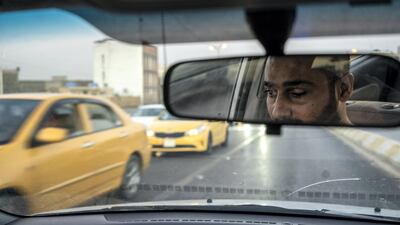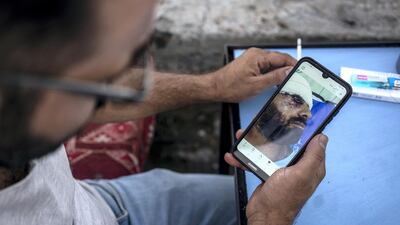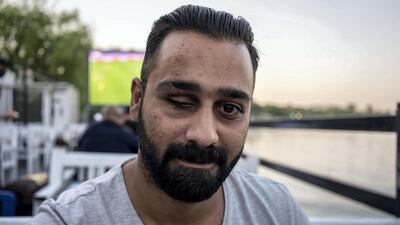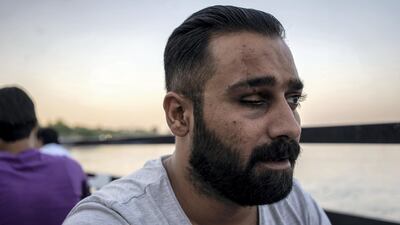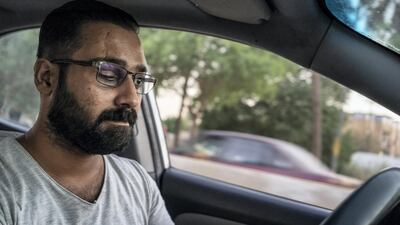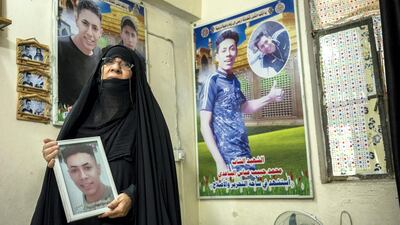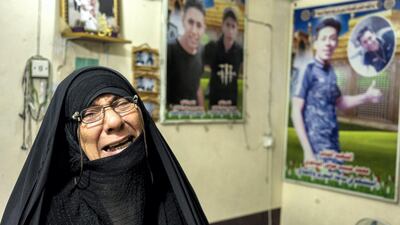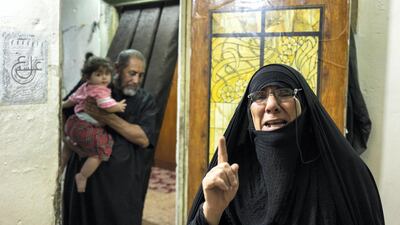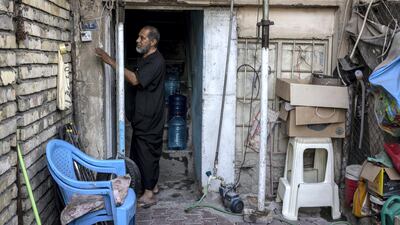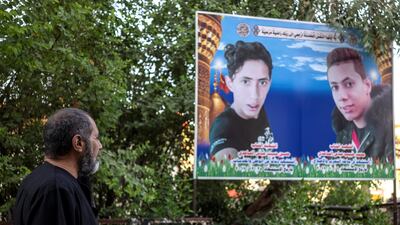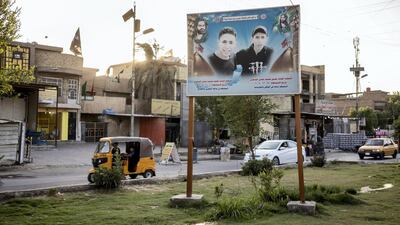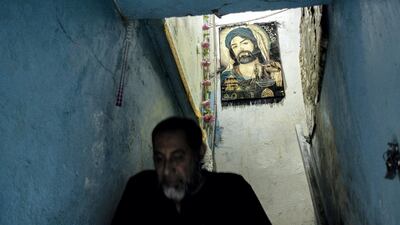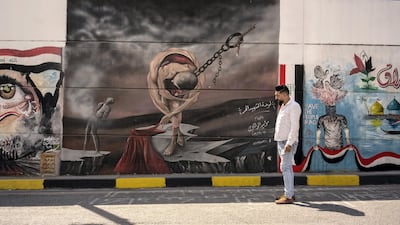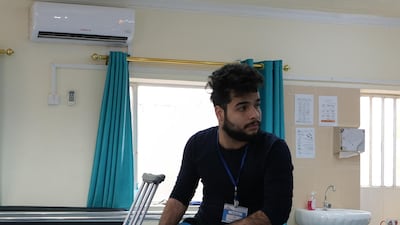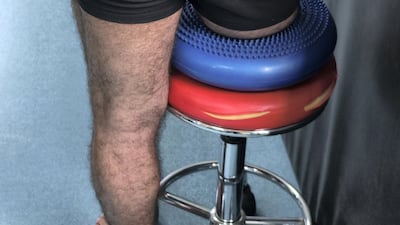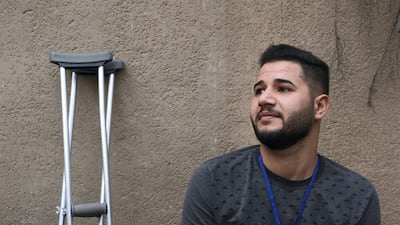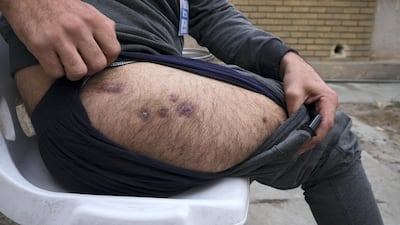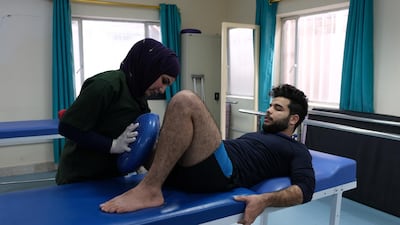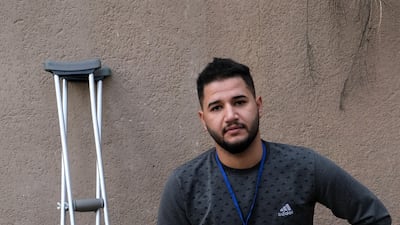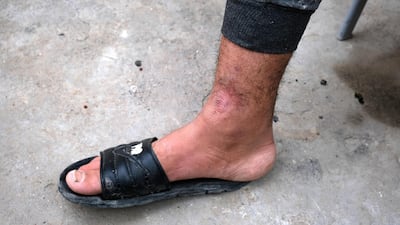For Layla Abbas Hussein, getting justice for her slain son seems a distant dream.
Mohammed Habib Abbas was the first demonstrator to fall in Iraq’s unprecedented pro-reforms protest movement that began on October 1 last year. A tear gas canister became lodged in his right shoulder and he bled to death.
"He was only holding the Iraqi flag and chanting 'we want a country' along with others," Ms Hussein, 51, told The National before bursting into tears.
“A year has passed now and there is no clue that could lead us to the killer, each government faction blames the other,” she said.
Ms Hussein's son Abbas, then 21, was one of the thousands of young people who took to the streets in Baghdad and southern cities to protest over the lack of jobs, poor public services and endemic corruption in Iraq.
According to government statistics released on July 30, at least 560 protesters and members of security forces have been killed, while thousands of others were wounded.
Most were protesters killed or wounded by security forces and state-backed militias firing live rounds and military-grade grenades. Some were assassinated – including two young activists in Basra last month – or disappeared.
The government has failed to hold anyone accountable, offering only promises of investigation and financial aid.
Ms Hussein says she is still devastated by the death of her son, who was to be married just a few weeks later, and that a fire rages inside her.
“We have zero trust in the government to bring us justice,” she said.
“All I need now from the government is to identify the killer of my son and his tribe will take revenge.”
The government led by Adel Abdul Mahdi, which was forced to resign a few weeks after the protests began, denied it had ordered the use of lethal ammunition against the protesters, blaming a “third party” for the killing.
The current prime minister, Mustafa Al Kadhimi, promised a thorough investigation after his government was installed in early May.
This month, Mr Al Kadhimi announced that the first stage of listing the names of victims had been completed. The next stage involving the launch of investigations and bringing those involved to justice will start “soon”, he said.
Also this month, Iraq’s top Shiite cleric Grand Ayatollah Ali Al Sistani joined the calls for justice to the victims.
The government needs “to seriously work to reveal all those who committed criminal acts that killed and wounded protesters and security forces … especially parties that are behind kidnappings and assassinations," he said.
Days later, Mr Al Kadhimi placed a travel ban on Iraqi army Lt Gen Jamil Al Shammari over his involvement in the deaths of dozens of protesters in the southern city of Nasiriyah in a single day last November.
Thousands of protesters who survived their injuries are living with scars.
Haider Hassan Alwan was one of seven people who escaped with injuries when security forces opened fire on protesters in Baghdad’s Hafidh Al Gadhi square last November. Twenty others died.
But he also paid a price: the loss of his right eye.
“We were waving Iraqi flags and chanting slogans when security forces took us by surprise and attacked us from three directions,” Mr Alwan, 30, recalled.
“All of a sudden, a tear gas canister hit my forehead and penetrated about 2 centimetres, smashing the bone above my eye.”
Nearly two months ago, he lost his job driving a taxi when the car's owner took it back after an accident caused by his impaired vision.
“What hurts a lot is that we achieved nothing and the government doesn’t hold anyone accountable and doesn’t compensate us,” Mr Alwan said.
Desperate for justice, families have taken to social media to voice their complaints.
A mother launched a Facebook page dedicated to her son, Mohanad Al Qaisi, who was killed in February in the southern city of Najaf.
“We have been in the courts for seven months now and have offered the court evidence and witnesses, but to no avail,” the mother says in a video as she sits next to a picture of her son.
“I have not seen any of the committees Al Kadhimi formed and none called me… tell us what’s wrong with our case, why is it stalled?” she says.
Addressing the government, she adds: “If you don't see this case as a big one and you can’t proceed with it, tell us and I’ll go to the international courts.”
